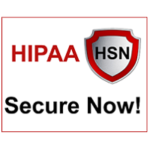Taking a break from who is hiring and who was hired, we rounded up some reading on the state of the healthcare workforce. Like many things in our lives for the past three years the pandemic has taken a toll on it. The healthcare workforce might be on the top of the list of disruption. With 18% of healthcare workers having left their jobs and another 12% being laid off, what are the solutions for healthcare as a whole? You can’t open a paper, magazine, or watch news and not hear about the crisis that has evolved. Here are some insights and reports.
In The News
SnapCare Introduces Transparent Pricing Promise for Healthcare Workforce Solutions
Healthcare systems will have unprecedented transparency into what they pay for contract staff under a new model introduced by SnapCare™, a tech-enabled workforce marketplace. SnapCare, formerly SnapNurse, is among the first technology companies in the healthcare workforce management field to transparently detail its costs and charges on invoices. Traditionally, staffing agencies have invoiced clients without disclosing clinician pay rates, benefit and travel costs, and markups.
With $200,000 Grant from Medica, RealTime Talent Seeks to Address Long Term Care Workforce Labor Shortages
RealTime Talent (RTT) was awarded a $200,000 grant from Medica to reduce certified nursing assistant shortages in long term care and older adult service facilities by implementing a newly designed training approach that will increase talent attraction and retention in this segment of health care. RTT is hosting the only Long Term Care Talent Pipeline Management® (TPM) Collaborative in the state. TPM helps employers improve their return on investment in various recruiting and retention processes by addressing talent issues using research and data-informed insights.
Mother Cabrini Health Foundation Awards $172 Million in Grants To Advance Health Equity Across New York State
The Mother Cabrini Health Foundation (@cabrinihealthNY) announced it has awarded 514 grants totaling $172 million to support nonprofit organizations addressing community health needs and disparities in health outcomes across New York State in 2024. Based on an analysis of community needs and feedback from frontline healthcare and social service providers, the Foundation refined its grantmaking strategy last year to focus on five core program areas: Access to Healthcare, Basic Needs, Healthcare Workforce, Mental and Behavioral Health, and a General Fund.
ShiftMed Launches ShiftAdvisor, an AI-Powered Personalized Scheduling Solution for Nurses
ShiftMed (@ShiftMedNurses), an on-demand workforce technology, announces the launch of ShiftAdvisor, a new AI-powered feature set to transform nurse scheduling and elevate the staffing efficiency of healthcare facilities. This solution is designed to benefit both healthcare professionals (HCPs) and facilities by optimizing shift scheduling, ensuring providers find the best shifts with minimal cancellation risks, and simultaneously enabling facilities to achieve optimal staffing levels.
Syra Health Expands its Healthcare Workforce Solutions
Syra Health Corp. (@syrahealth), a healthcare technology company with a mission to improve healthcare by providing innovative services and technology solutions, announced the expansion of its healthcare workforce business unit to include additional offerings.
To Read
From Axios – Health Care Workers Kept Leaving the Industry After Pandemic: Study
There’s been a “substantial and persistent” increase in health care workers leaving the industry since the pandemic, as staff who stayed on during the worst of COVID-19 leave for new opportunities in a robust jobs market, according to a new study in JAMA Health Forum.
ShiftKey’s Empowered Workforce Report Reveals Solution to Healthcare Professional Shortages
ShiftKey (@MyShiftKey), a technology marketplace disrupting healthcare through data and workforce empowerment, unveiled findings from the “ShiftKey Empowered Workforce Report.” The data highlights the role flexibility can play in alleviating the healthcare workforce crisis.
Resources
 Remote Workforce and HIPAA
Remote Workforce and HIPAA
Twitter: @HIPAASecureNow
Whether a change in your business structure came about from the pandemic, or it just makes more sense for your team, remote work is the norm for many more professionals today than it was in years past.
If you’re in healthcare, this means that you need to factor in the HIPAA component as well as cybersecurity to protect you, the business, and your patients.

